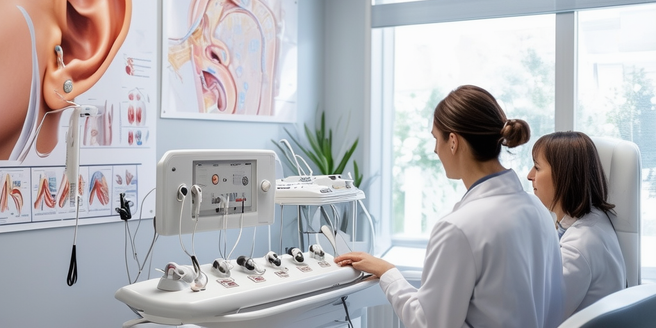
Understanding Hearing Loss
Hearing loss can occur due to a variety of reasons, including aging, noise exposure, and genetic factors. It affects millions globally, leading to challenges in communication, social interaction, and mental well-being. Understanding hearing loss involves recognizing its signs—such as asking for repetition, increasing volume levels, or feeling isolated in conversations. Many people are unaware that even mild hearing loss can have significant effects on daily life. Additionally, hearing difficulties can contribute to cognitive decline if left untreated. Early identification is crucial in mitigating its impacts and enhancing quality of life. Regular hearing check-ups can manage symptoms effectively and provide timely interventions. Emphasizing public education on audiological health is key to increasing awareness and access to hearing care solutions.
Key Advantages of Early Detection
Early detection of hearing loss offers significant advantages. Identifying hearing issues at an early stage allows for prompt intervention, preventing further deterioration. Early diagnosis facilitates better adaptation to assistive devices, like hearing aids, and minimizes the cognitive load associated with listening efforts. Furthermore, it encourages individuals to seek necessary support from healthcare professionals and audiologists. This proactive approach can lead to improved quality of life and overall well-being. It can enhance communication skills, maintain social connections, and improve mental health outcomes by reducing isolation. Moreover, early hearing tests can identify underlying medical conditions like hypertension or diabetes. Proactive hearing assessments can save individuals from the potential life disruptions that untreated hearing loss can cause.
Hearing Aids: What to Expect
Utilizing hearing aids can significantly improve the quality of life for individuals with hearing loss. While adjusting to hearing aids may require some time and patience, users typically experience notable improvements in communication and listening experiences. It’s important to stay informed about the latest hearing aid technologies that might offer additional benefits. It’s essential to set realistic expectations; hearing aids amplify sound but do not restore natural hearing. Regular follow-up visits with an audiologist are crucial to ensure the device is optimally calibrated to the user’s specific needs. Moreover, these appointments provide an opportunity to address any concerns or difficulties encountered. Practice and persistence in using the device are key to maximizing the benefits and ensuring a smoother adaptation process.
The Role of Audiologists
Audiologists play a pivotal role in the management of hearing health. They are trained professionals who diagnose and treat hearing disorders, guiding patients in selecting appropriate hearing aids or other assistive devices. Their work is essential in bridging the gap between hearing loss and effective communication. With advancements in technology, audiologists are now equipped with more precise diagnostic tools to better assess auditory issues. Audiologists also provide aural rehabilitation, helping individuals and families adapt to life with hearing loss. Their expertise extends to educating patients on how to protect their hearing, preventing future issues. Continuous collaboration with audiologists ensures that individuals receive tailored solutions and support, fostering long-term auditory health and overall well-being.
Long-term Benefits of Hearing Care
Committing to hearing care brings substantial long-term benefits. Proactive hearing management slows the progression of hearing loss and maintains auditory function over time. Individuals who prioritize hearing health report better quality of life, remaining socially active and engaged. Educating oneself about the importance of hearing health can empower individuals to take necessary steps for their well-being. Taking these steps can lead to a more fulfilling and independent lifestyle as one ages. Investing in regular hearing assessments and rehabilitation can minimize the cognitive decline associated with untreated hearing loss. Moreover, comprehensive hearing care reduces the risk of depression and anxiety, fostering better mental health. Long-term care thus not only preserves hearing but also enhances physical, emotional, and social well-being.
